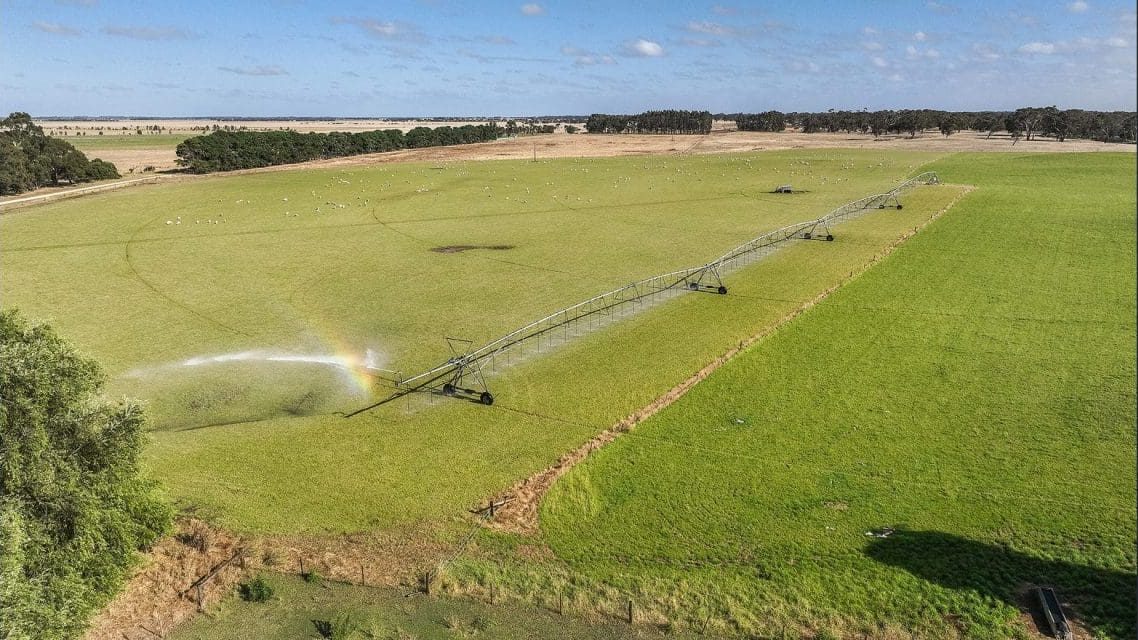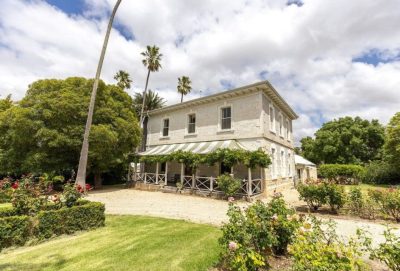
Lucindale has been operating as a sheep and cattle property and using irrigation to grow fodder. Photo: Elders
THIS week, we look at two listings with considerable potential for cash cropping, one in north-west Queensland and the other in South Australia’s South East.
Both are currently operating as grazing enterprises, and Marathon Station has the potential to become part of the growth in cropping evident in the tropics.
Marathon, Queensland
Direct access to the Flinders River may entice farmers to consider north-west Qld’s Marathon Station which is being sold by the Ievers family after more than 50 years of ownership.
The 19,248ha holding is located 40km east of Richmond and 70km west of Hughenden, centrally located between Townsville and Mt Isa.
Situated in a 450mm average annual rainfall region and offering abundant water and diverse soils, Marathon is situated in an emerging area for cropping cotton, legume and fodder crops, but its cropping potential is unknown.
The country on Marathon consists of around 10,000ha of fertile river flats, 3100ha of black basalt tableland and 5000ha of undulating black soil downs.
Marathon benefits from more than 20km of double frontage to the Flinders River, supported by numerous watercourses including the Walkers, Sloans and Codfish creeks, four bores and two dams.
Harnessing floodwaters for irrigation and dryland farming would need to be undertaken by the incoming purchaser because Marathon does not offer a water allocation or licence.
Farmers look north
Farmers and irrigators from New South Wales’ Murray-Darling Basin, who have face political and supply issues related to water, and Qld’s Darling Downs are looking to expand north to spread their risk.
Those who have taken their experience and expertise to Queensland’s north-west include Narrabri father and son Robyn and Luke Findley.
In 2019 they paid almost $25 million (including a 37,500ML water licence) for the McClymont family’s 28,442ha Etta Plains, 120km north of Julia Creek.
Featuring fertile, self-cracking clay soils, it was offered as an opportunity to establish a large-scale cropping operation with plenty of viable land for expansion, with 19,500ha of potential cropping land comprising 9500ha of potential irrigation and 10,000ha of dryland cropping.
At the time of sale, Alister McClymont said Etta Plains had 70 percent water reliability compared to 30 percent on Cubbie Station, but said the 37,000ML water licence was not enough for the property to reach its full potential.
In 2020, the Dickson family from central-western NSW secured Woodlands Station, also north of Julia Creek, for dryland farming.
The previous year, Michael Dickson, whose property at Warren was drought- stricken, partnered with Alister’s brother Malcolm McClymont to grow chickpeas, a crop which yielded 4000 tonnes, on his flood-affected country at Nelia in north-west Qld.
In December last year, a Dirranbandi cropping family paid $5.2m bare for North Queensland’s 9631ha Ophir Downs, 46km from Richmond.
The Gobberts grow wheat, barley, sorghum, chickpeas and oats on three properties Byra, Davirton and Challenor Park in south-west Queensland.
It is understood brothers Jason and Dean Gobbert are currently taking advantage of the moisture profile on Ophir and growing sorghum.
Infrastructure on Marathon includes a five-bedroom home, a cottage, numerous sheds, a shearing shed and cattle yards.
Stockplace agents Ashley Naclerio, Luke Westaway and James Coates are handling the sale of Marathon.
The walk-in walk-out sale includes plant and equipment and 2000 head of cattle, with final numbers to be negotiated with the successful purchaser.
Crower and Fellwood, SA
Cropping potential is also being offered on two iconic properties in South Australia’s South East, currently producing prime lamb, wool and beef.
The 1870ha Crower and Fellwood are situated 16km south-west of Lucindale in the tightly held Conmurra area.
They have been held by the Giles family since 2000 but have a history dating back 160 years.
The two properties failed to sell following an expressions-of-interest campaign, and are now being offered for sale as a whole or as individual holdings, with Elders agent Grant Schubert is negotiating with interested parties offering above $30M.
“Interest is coming from investors, locals and producers from Victoria and New South Wales seeking scale, water security and higher rainfall.”

Crower and Fellwood include this heritage-listed home. Photo: Elders
Mr Schubert reports signs of hesitancy and caution in the market.
“It is not the fear of missing out, it is the fear of making a mistake.
“People are waiting for that opening rain as a break of confidence and for interest rate security to measure the market.”
“This is a fantastic opportunity for interested parties to work with the vendor and get a result,” Mr Schubert said.
The Giles family has been running around 5000 ewes, 6000 prime lambs and 380 head of cattle, however Mr Schubert said Crower and Fellwood are ideal conversional cropping country.
“Drainage works have been undertaken over the last 10 to 15 years and the high-ground red loams to productive grey loams have the ability to almost instantly respond to opening rains.”
Situated in a 600-650mm average annual rainfall region, Crower and Fellwood have five irrigation pivots spanning 206ha and three water licences totalling 1371ML.
Infrastructure includes a heritage-listed four-bedroom home, a three-bedroom home, a six-stand shearing shed, a four-stand historic stone shearing shed built in 1864, cattle and sheep yards and numerous sheds.
Grain Central: Get our free news straight to your inbox – Click here

HAVE YOUR SAY